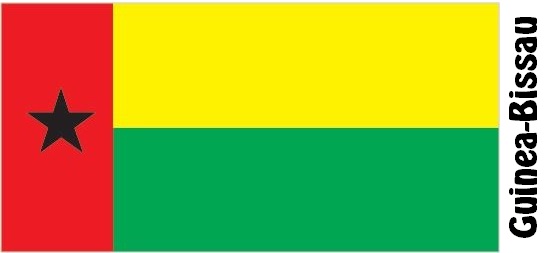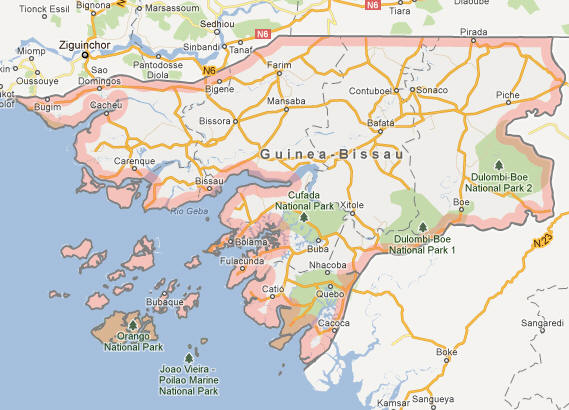Guinea-Bissau Facts
Guinea-Bissau, state on the west coast of Africa; 36,000 km², 1.9 million residents (2019).Guinea-Bissau borders on the north to Senegal and on the east and south to Guinea and on the west coast to the Atlantic; the country also includes the Bijagós Islands. The capital is Bissau (419,000 residents, 2012).

Country facts
- Republic of Guinea-Bissau / Republic of Guinea-Bissau
- Country abbreviation: GW
- Area: 36 000 km²
- Population (2019): 1.9 million residents
- Capital: Bissau
- Main languages: Portuguese
- State: Republic
- Head of State: Umaro Sissoco Embaló (President)
- Head of Government: Nuno Gomes Nabiam
- Per capita GDP (2018): US $ 778
- GNI per capita (2018): US $ 750
- Currency unit: 1 CFA franc = 100 centimes
- Currency code: XOF
- Country number (telephony): 245
- Internet domain name: gw
- Time difference compared to Sweden: −1
- National Day: September 24 (Independence Day, 1973)
Nature
- Land use: agricultural land (13%), other (87%)
Population
- Population density (2019): 53 residents per km²
- Natural population growth (2019): 2.8%; birth rate 37 ‰, death rate 9 ‰
- Age structure (2019): 0-14 years (44%), 15-64 (53%), 65- (3%)
- Life expectancy (2019): men 59 years, women 63 years
- Infant mortality (2019): 56 per 1,000 live births
- Population forecast 2050: 4 million residents
- HDI (2017): 0.455 (place 177 of 189)
- Urbanization rate (2019): 43%
- Most populous city (2012): Bissau 419,000 residents)
Business
- Industry’s contribution to GDP (2017): agriculture (50%), industry (13%), service (37%)
- Exports (2017): US $ 328 million
- Main export products: fish, shrimp, cashew nuts
- Main exporting countries: India, Vietnam
- Imports (2017): US $ 284 million
- Main import products: food, machinery, means of transport
- Main importing countries: Portugal, Senegal, China
- Railway network: nothing in operation
Guinea-Bissau consists of a largely wooded, low-lying coastal country and an inland savanna-clad plain.
According to the current constitution, the president is head of state and can be elected for five years. Parliament is elected in direct elections for four years. The Prime Minister is appointed by the President. After a military coup in 2012, the political situation in the country is unclear.
The country’s business sector is dominated almost entirely by agricultural production. The industry that exists is little developed and mainly focuses on food production. The country has been struggling with financial problems since independence in 1974 and has been dependent on aid and loans. During the 2000s, the world market price of cashew nuts, which is the most important export commodity, has dropped significantly, while the country’s most important trading partner India has increasingly begun to buy cashew nuts from its own growers.
Guinea-Bissau Map














































